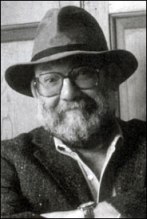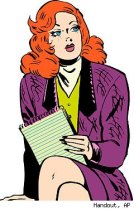I was in my forties when I began to doubt the quality of contemporary literary fiction.
For 20 years, I had read brilliant short stories and novels by Raymond Carver, Ann Beattie, Elizabeth Tallent, William McPherson, Douglas Unger, Frederick Barthelme, Rachel Ingalls, Robert Irwin, John Casey, Jay McInerney, and Frederick Busch.
I cannot say any of these writers had much in common.
But suddenly they seemed to be replaced by less good writers. The New Yorker dropped my favorites and published verbose writers I could not read. The Best American Short Stories was a joke: the same writers in every anthology, I swear. It became difficult to find good new fiction.
A friend who edited a literary newsletter pro bono felt the same way.
“I don’t know whom to read anymore.”
She hated reading new fiction so much she was always calling me to write articles for her.
“I’m sorry, but I have too much to do right now,” I would say.
“I’ve written practically the whole newsletter already. Couldn’t you interview somebody for me?”
No one would help her because the newsletter had no circulation and didn’t pay.
“You know I only do bubble-gum journalism.”
“PUH-LEEZE. You’re wasting your time with that.”
Bubble-gum journalism is fun. If you write about what restaurant serves the best pork chops in the Midwest, or the thrift shop where apocryphally Tom Petty bought a jacket, you can do interviews or not, and you can be blase and blessedly short.
“One more article about that Tom Petty jacket and you’re off my party list forever.”
She did give good parties.
She added, “And it will only take you ten minutes to do the interview.”
What interview ever took ten minutes?
But she was my friend.
I don’t know how many interviews I did for her–all I know is I wrote them up fast. Once I interviewed a famous person who actually WANTED to be interviewed for this little newsletter and I lost the notes.
I had to apologize to him. But I simply couldn’t bear to interview him again.
I really hated interviewing writers. I was either too awed or inarticulate to enjoy myself. I asked questions only if there was a pause. The famous people were used to being interviewed and knew what to say; the local poets were often rude and I had to dig everything out of them with questions.
“I didn’t think you’d pull it off but you did a very good job,” an obnoxious poet told me once after it was printed.
Duhhh…
“I didn’t even think you were who you said you were.”
And wasn’t it rude of him to call me like that? He had looked at my reporter’s notebook and suspiciously said that my handwriting wasn’t real writing.
“It’s my style of taking notes,” I said. “Like shorthand, you know.”
He was paranoid.
Of course now even The New York Times is doing e-mail interviews with Richard Russo, so the stress of the traditional interview is gone.
Diana Trilling wrote in her autobiography, Beginning of the Journey, that no one ever believed her, and I know that feeling. A couple of times I have had the eerie experience of not being believed that I am who I say I am. I mentioned at a conference some years ago that I had interviewed a certain well-known writer. Silence. I was asked later by a concerned woman if I “knew who I was.” She thought I was having a nervous breakdown.
I think in my case it’s a just a fatal shyness when I meet people for the first time. Once I get to know somebody, I chat non-stop and am “believeable.”
Much as I love to read, and I would rather read than anything, I finally said no to my friend and stopped interviewing writers. I had interviewed every local writer, and the novelists who came through on book tour didn’t interest me.
The brilliant writers don’t come here on book tour: I’m not talking about “brand-new” writers, but experienced writers. Even the experienced writers sometimes bore me now: every book is so long: where are the editors? Whatever happened to telling a story under 300 pages?
IIn this century, even great writers sometimes take a wrong path. Is it just me, or is there a surfeit of literary historical novels on the market? Did the brilliant Hilary Mantel and Julian Barnes need to impress us with their great research skills? Mantel is probably at the height of her powers, and though I loved Wolf Hall, I much prefer her contemporary women’s fiction: is there a chance she’ll go back to that? I enjoyed Julian Barnes’ Arthur and George, but who wasn’t relieved when he went back to the present?
The only person who should write historical novels is Sebastian Faulks.
Okay, I don’t mean that.
The U.S. actually has many innovative writers right now. I can’t get enough of Meg Wolitzer’s glorious comedies, Michael Chabon’s verbal pyrotechnics, Jonathan Lethem’s impossible-to-classify sometimes fantastic fiction, and Ursula K. Le Guin’s original, thoughtful novels: could they please write more quickly? (Well, actually, they’re doing a pretty good job: it’s not as though they’re making us wait 10 years, like Jeffrey Eugenides and Donna Tartt.)
Yet I can’t help but feel that some of the most popular literary writers are overrated. I preferred Franzen’s The Corrections, a very good novel about an American family, to Freedom, which seemed to ramble on and on and on. (Since Obama liked it, I doubt he cares about my opinion.) I also disliked Jennifer Egan’s well-written but glacial A Visit from the Goon Squad, which falls apart in the last few chapters, and I don’t know what the fuss is about. Although many loved Dave Eggers’s A Hologram for a King, I was disappointed. Yet he’s such a good person–I can tell from all the good work he’s done.
The other day I read Ian McEwan at The Guardian about moments when his faith in fiction wavers:
I confess, I’ve been on those panels with fellow believers as we intone the liturgy, that humans are fabulators, that we “cannot live” without stories. Priests, too, always imply that we cannot live without them. (Oh yes we can.) My doubter’s heart fails when I wander into the fiction section of a bookstore and see the topless towers on the recent-titles tables, the imploring taglines above the cover art (“He loved her, but would she listen?”), the dust-jacket plot summaries in their earnest present tense: Henry breaks free of his marriage and embarks on a series of wild …
And, yes, don’t we all know? (Except he’s also talking about its effect on writing fiction, too, and we don’t do that.)
I have mentioned many superb contemporary writers, after saying there are mostly bad ones, but…
There are some very bad books out there, and I don’t want to depress their writers.



I confess that I really have moved away from contemporary fiction in recent years. I’m not sure if it’s the subject matter, the style of writing or what, but I just find 20th century works so much more rewarding. Definitely the book market is flooded with too much rubbish writing which soon ends up on the remainder piles. (and I was left so cold by “Goon Squad” I didn’t even finish it….) I think publishers could do with actually concentrating on the quality of what they put out instead of looking for the next big seller, but they only reflect what’s happening in every branch of the arts nowadays.
LikeLike
I can’t help but think there are some very good books out there we don’t find out about. So many get published, and we find out about so few. The same books are promoted by every bookstore. Well, I don’t mind that, but how about those book reviewer papers, hmmm? Couldn’t they review something different sometimes? (Actually many of them do.:)
LikeLike
Oops, I should probably mention that I often pick my contemporary reading on the “opposites” approach. There are many remarkable reviewers, but some ALWAYS have the “opposite” taste of my own. I can read any positive review now by _____, _____, and ____, and automatically scratch the book off my list.
If only I could get the time back from perusing the pop lit of Egan and Franzen!
LikeLike